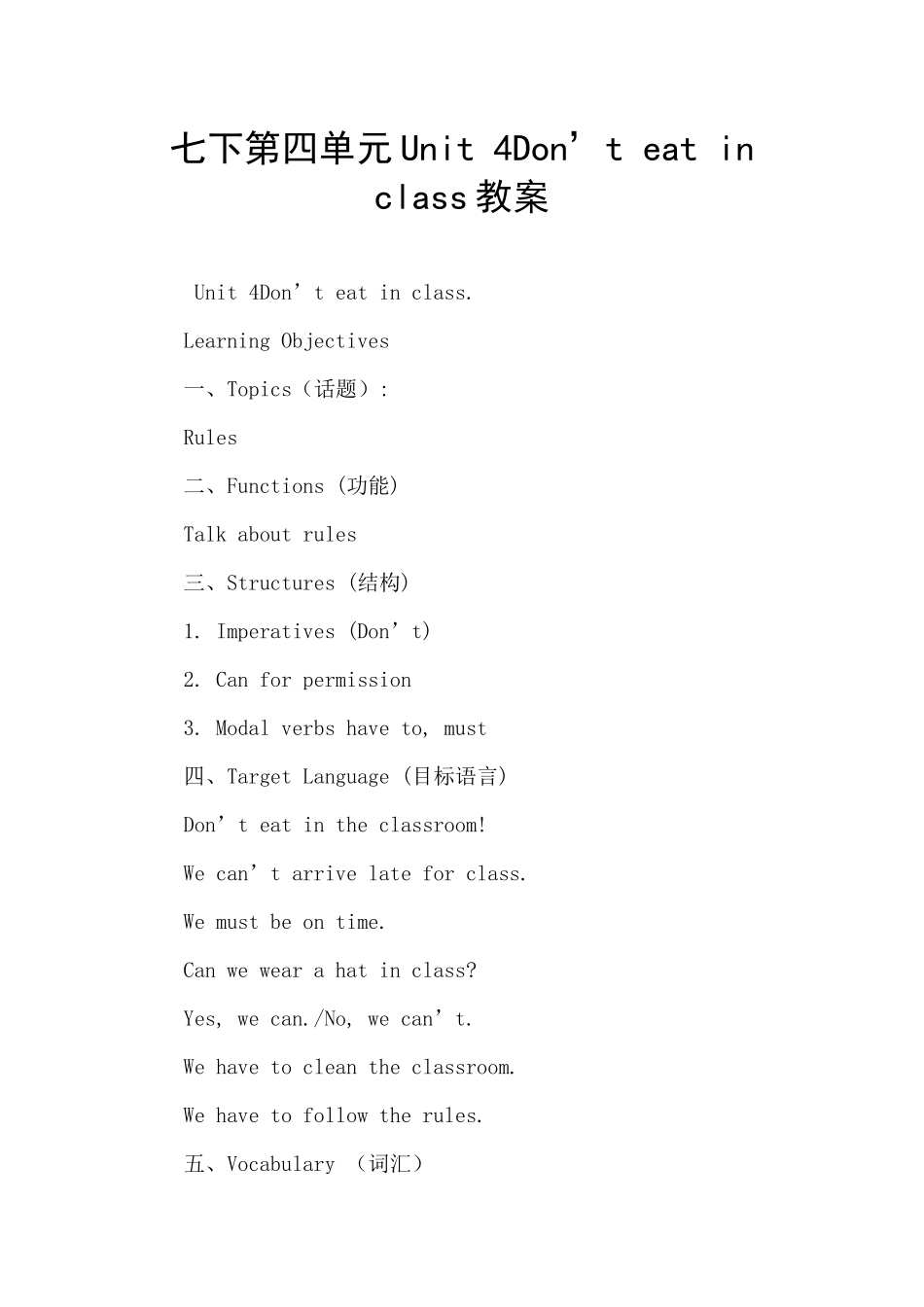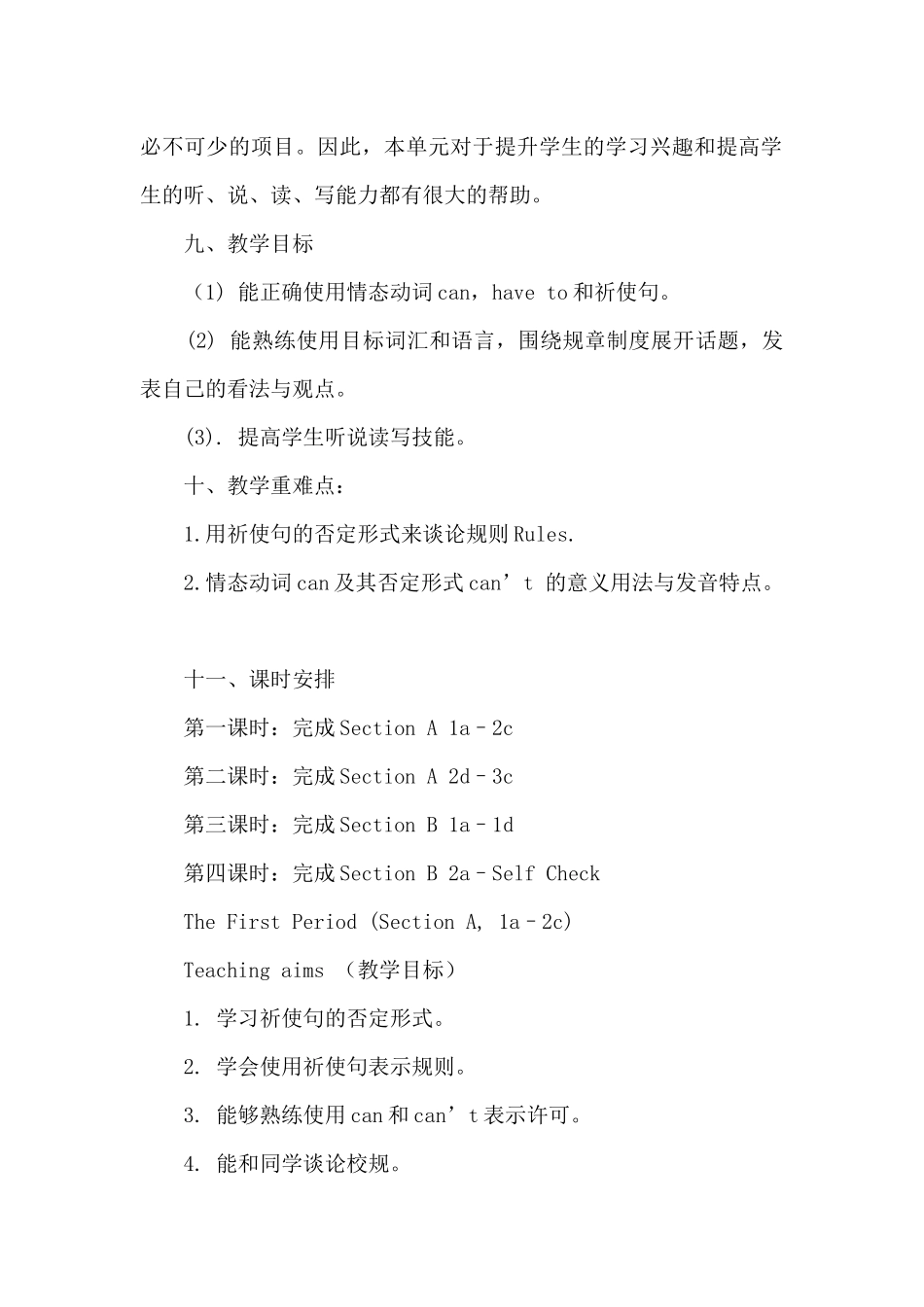七下第四单元 Unit 4Don’t eat in class 教案 Unit 4Don’t eat in class. Learning Objectives 一、Topics(话题): Rules 二、Functions (功能) Talk about rules 三、Structures (结构) 1. Imperatives (Don’t) 2. Can for permission 3. Modal verbs have to, must 四、Target Language (目标语言) Don’t eat in the classroom! We can’t arrive late for class. We must be on time. Can we wear a hat in class? Yes, we can./No, we can’t. We have to clean the classroom. We have to follow the rules. 五、Vocabulary (词汇) rule, dish, night, luck, hair, arrive, listen, fight, wear, bring, practice, relax, read, feel, remember, follow, keep, learn, quiet, noisy, dirty, terrible, strict arrive late for class, be on time, listen to music, do the dishes, make your bed, be strict with …, follow the rules 六、Skills (技能) Listening for key information Scanning in reading 七、Recycling (复习巩固) go out, do your homework, watch TV, clean your room, help your mom make breakfast , in the evening, every Saturday 八、教材分析 这本教材的词汇量很大,有难度,但是,内容新颖,尤其是生动活泼的卡通化的画面,很符合七年级学生的年龄特点和心理特点,其中还囊括了丰富多彩的文化知识,以及合作探究的活动,十分贴近学生的实际生活经验。 本单元的话题 Talk about rules.与日常生活密切相关。作为一名中学生,遵守校纪班规家法,和社会公共场所的规章制度是必须的。在谈论规则时,一般运用祈使句、情态动词 can 和 have to等。这是英语新课程标准中规定所必须掌握的内容,是交际英语中必不可少的项目。因此,本单元对于提升学生的学习兴趣和提高学生的听、说、读、写能力都有很大的帮助。 九、教学目标 (1) 能正确使用情态动词 can,have to 和祈使句。 (2) 能熟练使用目标词汇和语言,围绕规章制度展开话题,发表自己的看法与观点。 (3). 提高学生听说读写技能。 十、教学重难点: 1.用祈使句的否定形式来谈论规则 Rules. 2.情态动词 can 及其否定形式 can’t 的意义用法与发音特点。 ...


